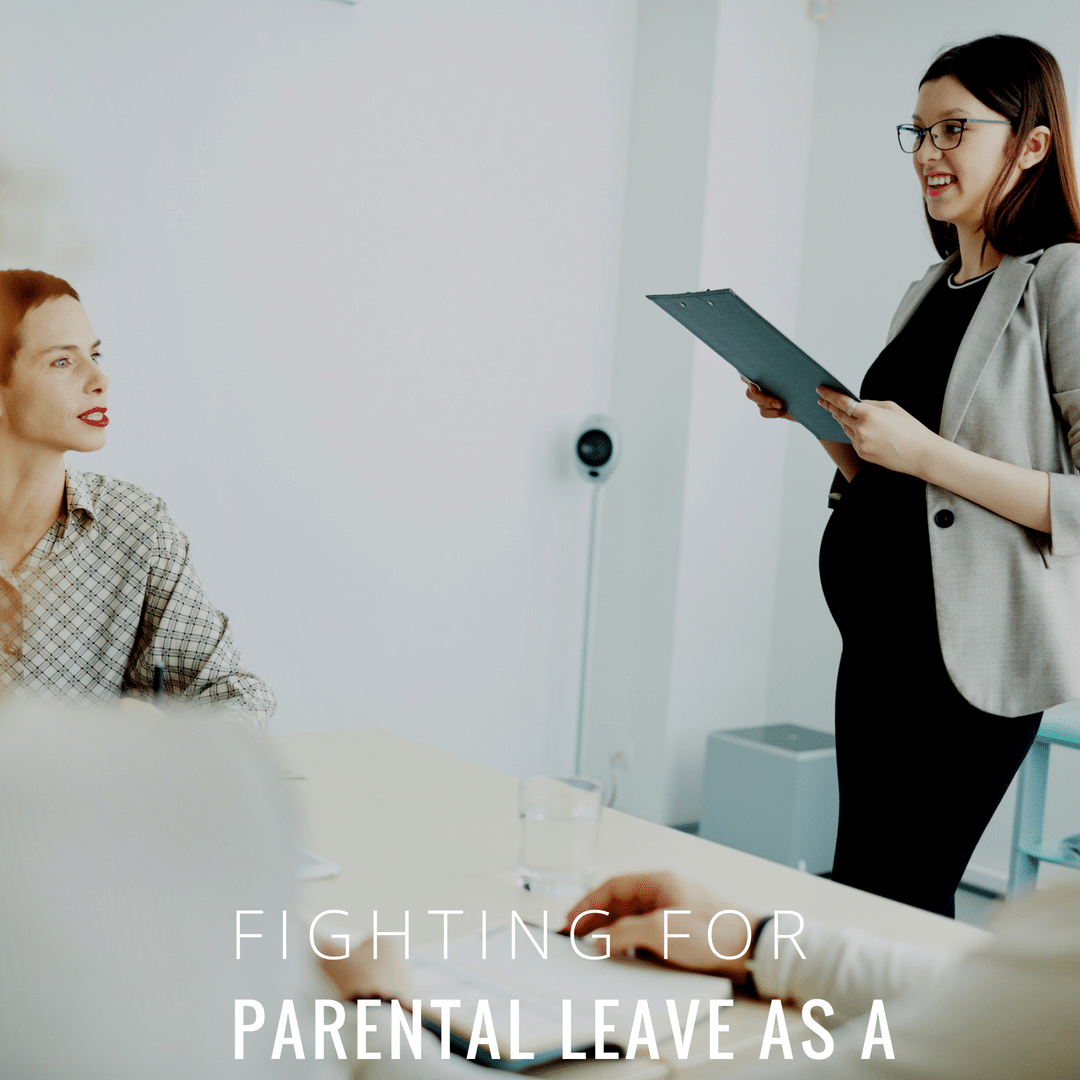At sixteen, I decided that I wanted to become a high school teacher, and one of my main reasons to pursue this endeavor was because I believed teaching is a mother-friendly career. I’d be at work while the kids were in school; I’d be able to make their early evening activities’ events; I’d be at home during summer break; I’d have extra time with them during the winter holiday season. After five years of teaching, I left the profession partly because I struggled to balance being a great parent and a great teacher. For most of this nation’s teachers, the tension between profession and parenthood begins the moment the child is born when they have to answer the question: How long of a parental leave can I take?
[bctt tweet=”How long of a parental leave can I take?” username=””]
Initially, when I thought about this question, I thought I was really answering, “How long can I let someone else be responsible for my students?” After becoming pregnant and exploring my district’s maternity leave policy, the question transformed into “How much financial strain can my family bear?” Similar to most districts’ policies, my school’s policy was, “You are allowed 12 weeks, but once your sick days are depleted, you will no longer be paid for your leave.”
Furthermore, what no one prepared me for was the fact that no pay meant no service credit for that period. Therefore, I ended the year with 0.92 service credit, and since I left teaching after five years, I am not fully invested in the retirement system. Being fully informed possibly would have convinced me to stay in the profession for another year and to delay having a second child.
Last month, New York City instituted a policy that will hopefully sweep the nation: teachers who become parents will be given six weeks of paid parental leave. No longer will teachers need to use their sick days or be denied pay during the first six weeks of maternity/paternity leave. They will be able to bond with and care for their newborn in a less stressful situation. Considering that the United States is still the only developed country that doesn’t mandate paid parental leave to its working citizens, New York’s policy is a victory for children and their parents. Earlier this year, The Washington Post published an article that listed other countries’ policies and CNN published an article that explained countries’ breakdowns of paid vs unpaid time, and as a mother, envy gripped my heart as I read that some Bulgarian parents receive 46 weeks of paid parental leave.
The National Center for Children in Poverty and International Labor Organization recommend at least 14 weeks of partially paid leave (at least two-thirds of the parent’s salary). These organizations, and countless others. cite decades of research that argues longer parental leave helps lower infant mortality rate and increases the likelihood of breastfeeding. According to the American Academy of Pediatrics, “unequivocal evidence” states that “breastfeeding protects against a variety of diseases and conditions in the infant” and benefits the mother by decreasing chances of breast cancer and ovarian cancer, among other things. So why are so we behind the times when it comes to parental leave?
Even though I worked for different schools when my children were born, both had the “use your sick and vacation days” policy, but my first maternity leave wasn’t fully paid, while my second one was. With my daughter, I only had 22 sick days saved, and since my doctor instructed me to stop working the week before my daughter was born due to a medical concern, I ran out of sick days three weeks after she was born. Imagine leaving a three week old at home. I didn’t leave the building without my daughter until she was over a month old, so I cannot fathom returning to work just three weeks after birth. Due to our daycare arrangement, my maternity leave was 7.5 weeks long, so I wasn’t paid for about half of it. Thankfully, my school offered to withhold wages earlier in the year and distribute the retained money during my leave, so I still had a paycheck, and my husband and I had an insurance plan that provided additional funds, but after all that, we had to dip into savings to pay bills.
Parents, regardless of profession, should not have to choose between caring for their newborn and working to pay bills, but devastatingly, the majority of our nation’s teachers find themselves between this rock and a hard place. With my son, I was able to take 11 fully paid weeks and have extra sick days to use throughout the year. The University offers more sick and vacation days than my previous school district did. After working for the University for one year, I had more than double the number of paid-leave days than I did after working for 2.5 years in my previous district.
Several presidents have fought for paid parental leave, but no law has come to fruition. So what can teachers do?
Talk to Your School Board/State Lawmakers
If we can’t make the change nationally, let’s start locally. Attend School Board meetings and discuss the concern. If your district has collective bargaining, speak to your representatives. In 2017, California Governor Brown vetoed a state bill that would have required paid parental leave for teachers because he believed that collective bargaining should address the issue on the local level. Call your State Senators and Representatives. Explain why this issue is important to teachers. Cite New York’s policy; research other districts in your state that have made the change; explain the benefits to child development and parent health.
Understand Your District’s Policy
I wish I had talked to HR before I had gotten pregnant with my daughter. If I had, my husband and I would have waited a few months, so we could have had a child closer to the summer. When I changed jobs, I asked HR about maternity leave, and after realizing that I could have my entire leave paid for, my husband and I started trying to get pregnant. Find out if your school will withhold pay and redistribute later. Find out how unpaid leave affects your retirement. If your school provides your health insurance, I would consider speaking to a representative, so you understand and can prepare for possible medical costs.
Research Financial Help Options
Most short-term disability plans require enrollment for at least 10 months prior to withdrawing funds, so parents will need to sign up for the policy before getting pregnant. I reached out to friends who are financial planners to gain insights about budgeting, and I talked to friends about approximate monthly costs once the child was born. One of our mistakes with my first pregnancy was that we started discussing finances later, so with my second pregnancy, we adjusted our monthly budget early. Relieving some financial stress goes a long way!
Look Into Your Partner’s Parental Leave Policy
Your partner’s company may pay for parental leave. Consider taking your parental leaves at different times. If my husband’s company had paid parental leave, I would have returned to work earlier after having my daughter, and my husband would have stayed home with her, so I wouldn’t have lost as much pay.
This issue is exceptionally important to educators because babies eventually turn school-age, and they enter our buildings and our lives. We need to fight for them before they are a part of our classrooms. If this country values quality education for every child, why are we not advocating for every child to have the best start by having enough time to bond with his/her parent?






